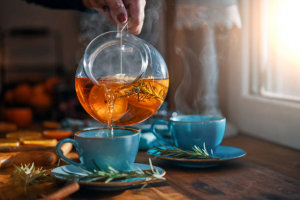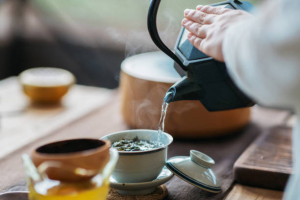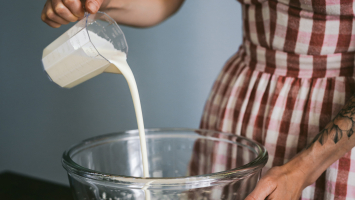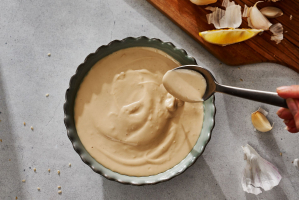Top 6 Best Teas for Asthma Relief
Shortness of breath, wheezing, coughing, and chest tightness are some of the symptoms of asthma, a chronic disease that damages the lining of your airways. ... read more...Even though there are many conventional asthma therapies, certain herbal teas may help with symptom relief. Here are the greatest teas for relieving asthma.
-
The ginger plant's roots are boiled to make ginger tea. This potent spice is packed with vitamins, minerals, and bioactive substances. Reduced inflammation, relief from motion sickness, and decreased blood sugar levels are just a few advantages. Additionally, studies indicate that ginger may aid with asthmatic symptom relief. Ginger molecules, such as gingerols and shogaols, may lessen asthma symptoms by lowering airway inflammation, according to test-tube research employing human cells.
In a two-month trial, 92 asthmatics were given either 450 mg of ginger extract or a placebo every day. Notably, 52% of individuals in the ginger group reported improvement from chest tightness, and 20% reported alleviation from wheezing. You might also prepare ginger tea at home. To make ginger tea, just grate a small knob of peeled ginger, steep it in 1 cup (240 mL) of boiling water for 10 to 20 minutes, depending on the strength you want, and then filter the ginger out. Ginger tea can be consumed alone or with a hint of lemon, honey, or cinnamon.
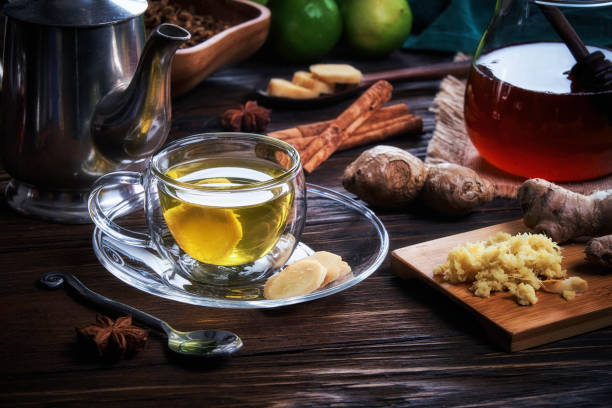
Ginger tea 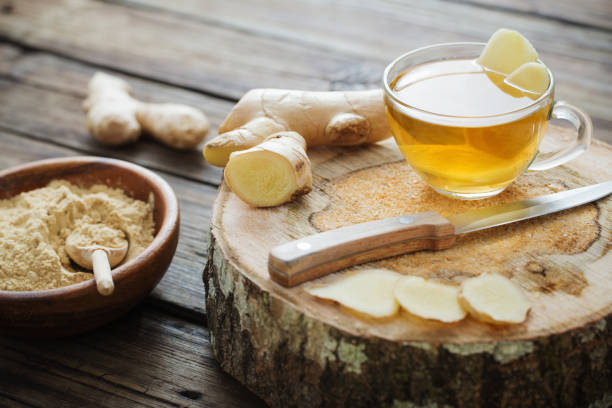
Ginger tea -
The leaves of the Camellia sinensis plant are used to make the famous beverage green tea. It contains a wealth of vitamins, minerals, plant-based chemicals, and antioxidants that have been linked to weight reduction, a decreased risk of type 2 diabetes, heart disease, and several malignancies. Additionally, studies indicate that green tea may help with asthma symptoms. To start, research on animals suggests that green tea antioxidants may lessen lung inflammation, a typical asthmatic symptom.
Research involving more than 1,000 adults also revealed that those who drank at least two 8-ounce (240 mL) cups of green tea had much superior lung function than those who didn't. Last but not least, green tea contains caffeine, which may help to temporarily relieve asthma symptoms by relaxing your airways for up to 4 hours. You may buy green tea in tea bags or loose leaf form.
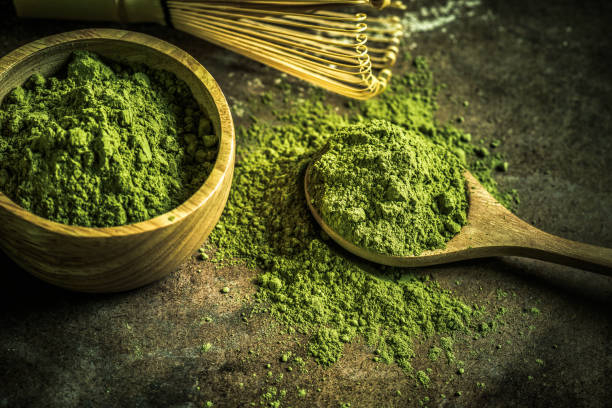
Green tea 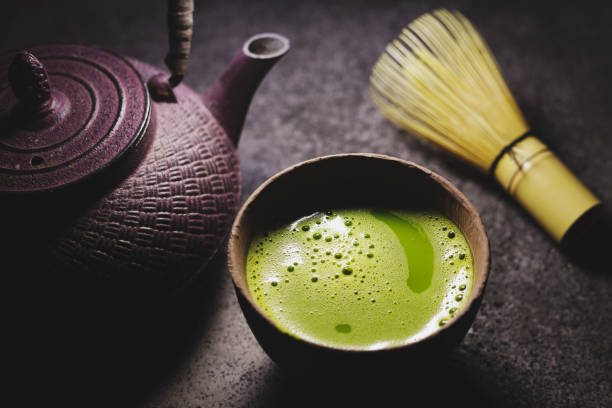
Green tea -
Black tea also originates from the Camellia sinensis plant. The flavor is nonetheless enhanced by oxidation, which occurs when it is exposed to air and the leaves turn dark brown. It is frequently combined with other ingredients to create teas like Earl Grey and English breakfast.
Black tea has caffeine, much like green tea, which may assist to relax your airways and somewhat enhance lung function. This could help to temporarily alleviate asthma symptoms. A decreased risk of heart disease and type 2 diabetes is one of its other possible advantages. You may get black tea in tea bags or loose leaf form.
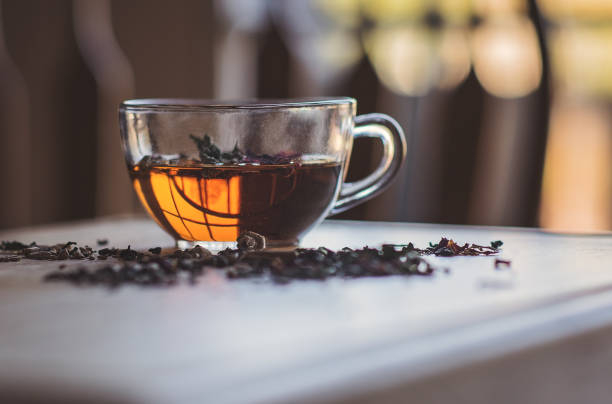
Black tea 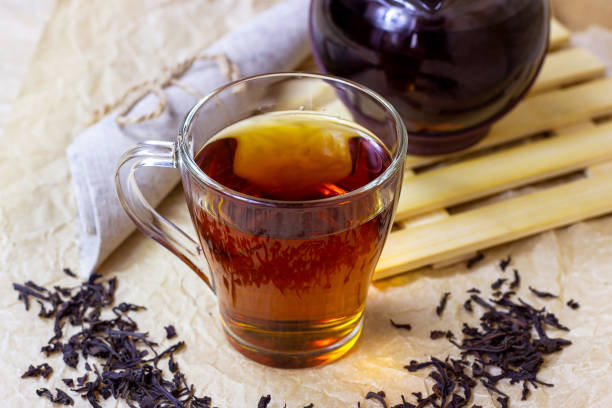
Black tea -
The leaves of the eucalyptus tree, which are rich in potent antioxidants and plant chemicals like eucalyptol, are used to make eucalyptus tea. Particularly, eucalyptol may aid with the symptoms of asthma. According to research, this substance may open up your bronchioles, which are the airways within your lungs, reduce inflammation and mucus production, and reduce mucus production.
32 patients with bronchial asthma participated in 12-week research in which they received either 600 mg of eucalyptol daily or a placebo. When compared to the control group, individuals who got eucalyptol needed 36% less medication to treat their asthma symptoms. Dried eucalyptus leaves may also be used to create your own at home. Simply use a sieve or cheesecloth to get rid of the leaves before drinking by steeping the dried leaves in 1 cup (240 mL) of boiling water for up to 10 minutes.
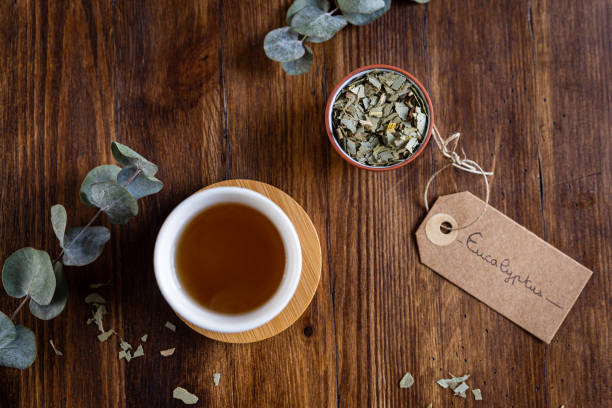
Eucalyptus tea 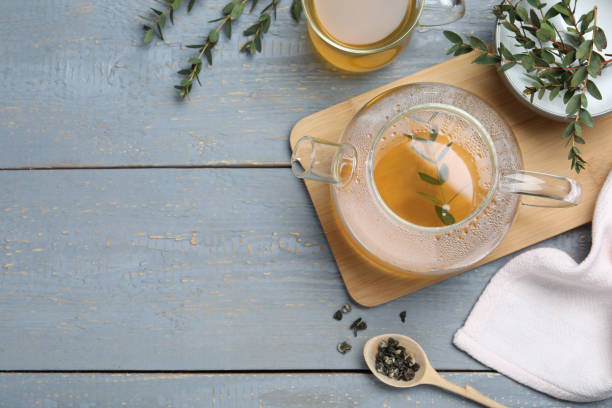
Eucalyptus tea -
The root of the licorice plant, Glycyrrhiza glabra, is used to make licorice tea, which has a characteristic sweet yet somewhat bitter flavor. Licorice root has a long history of usage in traditional medicine to treat a number of ailments, including asthma. According to research conducted on animals, salbutamol and the extract of the licorice ingredient glycyrrhizin together significantly reduce the symptoms of asthma (albuterol).
A more long-term study is required, even though human research has shown comparable findings. Remember that licorice root used in big doses might have harmful side effects. It's advisable to restrict your daily tea consumption to one cup (240 mL) and to talk to your doctor if you have any medical issues.

Licorice tea 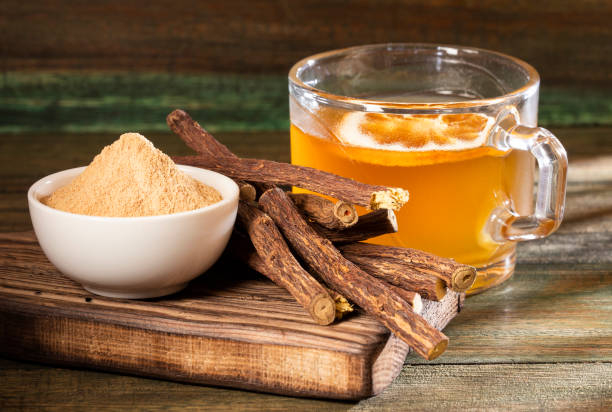
Licorice tea -
The leaves of the common mullein, which is indigenous to Europe, Asia, and Africa, are used to make mullein tea, a flavorful and fragrant infusion. For thousands of years, it has been used in traditional medicine as a treatment for respiratory illnesses like bronchitis, catarrh (an accumulation of mucus), and asthma. Mullein may help cure asthma symptoms like coughing, wheezing, and shortness of breath by lowering inflammation, which eases the tension in your respiratory tract's muscles, according to research on both animals and humans. Still, additional study is required.
Mullein tea is offered in dried leaf form or in packed tea bags. Simply mix a few dried mullein leaves with 1 cup (240 mL) of boiling water and let them simmer for 15 to 30 minutes to produce mullein tea. To avoid irritating your throat, remove the leaves using a sieve or cheesecloth.
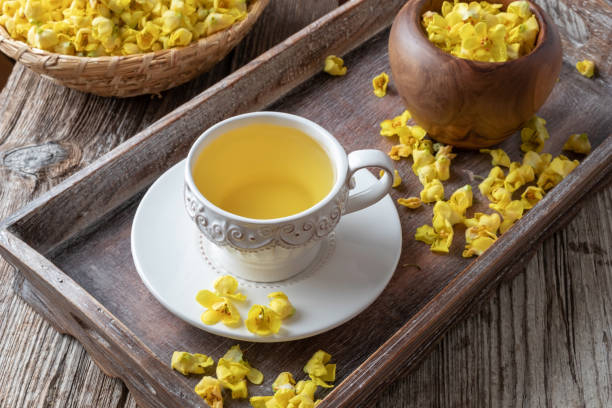
Mullein tea 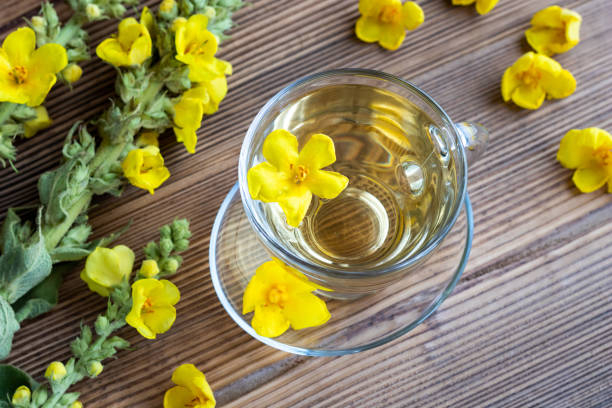
Mullein tea








